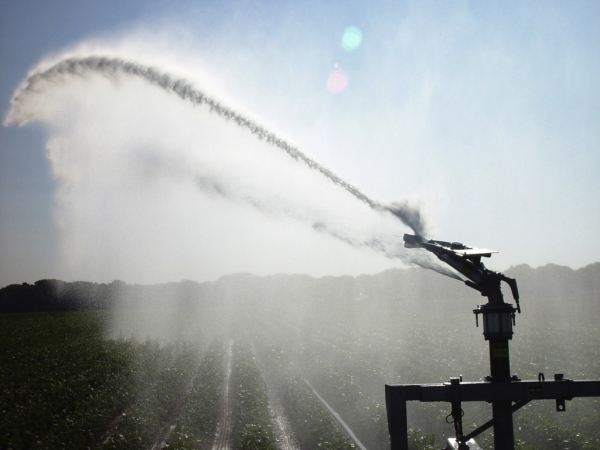Water in the Fourth Industrial Revolution

Strange as it may appear, I cannot hide my excitement to read in the World Economic Forum’s 2016 global risk report the great emphasis on the risks posed by climate change. Quoting WEF, the top finding is “the potential for climate change to exacerbate water crises, with impacts including conflict and more forced migration, calling for improved water governance to adapt to climate change and accommodate a growing population and economic development.”
The writing is on the wall.
Of course I am dismayed and concerned by the new evidence of the impact climate change is having and will increasingly have on natural, social and economic systems. But I am deeply encouraged by yet another authoritative and resounding acknowledgement by the public and private sectors that the consequences of global climate change demand new ways of managing our use of energy and natural resources. Recognition of the seriousness of the risk is a crucial step toward decisively addressing it.
Water, in particular, has suffered from seriously flawed management. Since the dawn of human history, we have dammed, dredged and drained freshwater ecosystems to suit our needs. We have dumped our waste into the same rivers from which we draw our water and pull our fish. We have introduced exotic species, damaging indigenous ones and local ecosystems. It’s madness. But put yourself in the shoes of those tasked with managing water resources – what do you prioritize? The human right to water? The right to food? Energy production? Functioning production systems and economies? Water is the ultimate shared resource, and it embodies all the tricky trade-offs inherent in natural resource management.
The findings of the risk report reflect a legacy of short-sighted decision making on climate and energy issues, and water governance. But this year’s WEF Annual Meeting is focused on theFourth Industrial Revolution – the convergence of the physical and digital worlds that will fundamentally alter the way we produce, consume and relate to one another. This means we have the opportunity to take a radically different approach – one that puts us on the path to sustainability and the urgently needed transition to a development model that respects the natural systems everything depends on.
This starts by recognizing the limitations of technology. The three previous industrial revolutions were triggered by technological leaps, but these were accompanied by the static mindset that nature exists only to serve humanity, and indeed as an unlimited capacity to do so. Yes, the Fourth Industrial Revolution will include new technologies – we see them almost every day. But it must be defined by an ideological shift that recognizes how healthy ecosystems underpin all economic enterprises – even at the most basic level of ensuring a healthy human worker and consumer.
When it comes to improving water governance and building resilience to climate change, technological fixes alone won’t get the job done. The CEOs in Davos represent companies that have made huge strides in water efficiency in recent years – yet as the risk survey shows, they still face bottom-line business risk because of poor water management. This means they must step out of their efficient factories and become advocates for and investors in collective action to optimize water for all users – communities, companies and nature itself. This is the mindset that will shape the Fourth Industrial Revolution; this is the mindset that will help address the risk posed by climate change and poor water governance, and ensure a more prosperous, sustainable future for all of us.
Marco Lambertini is Director General of WWF International.

Facebook comments